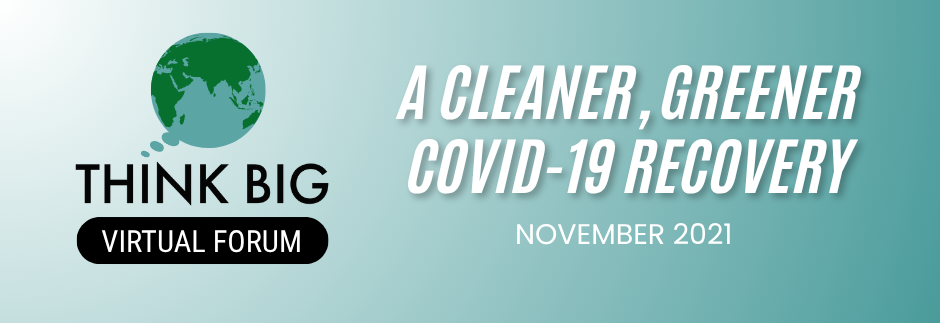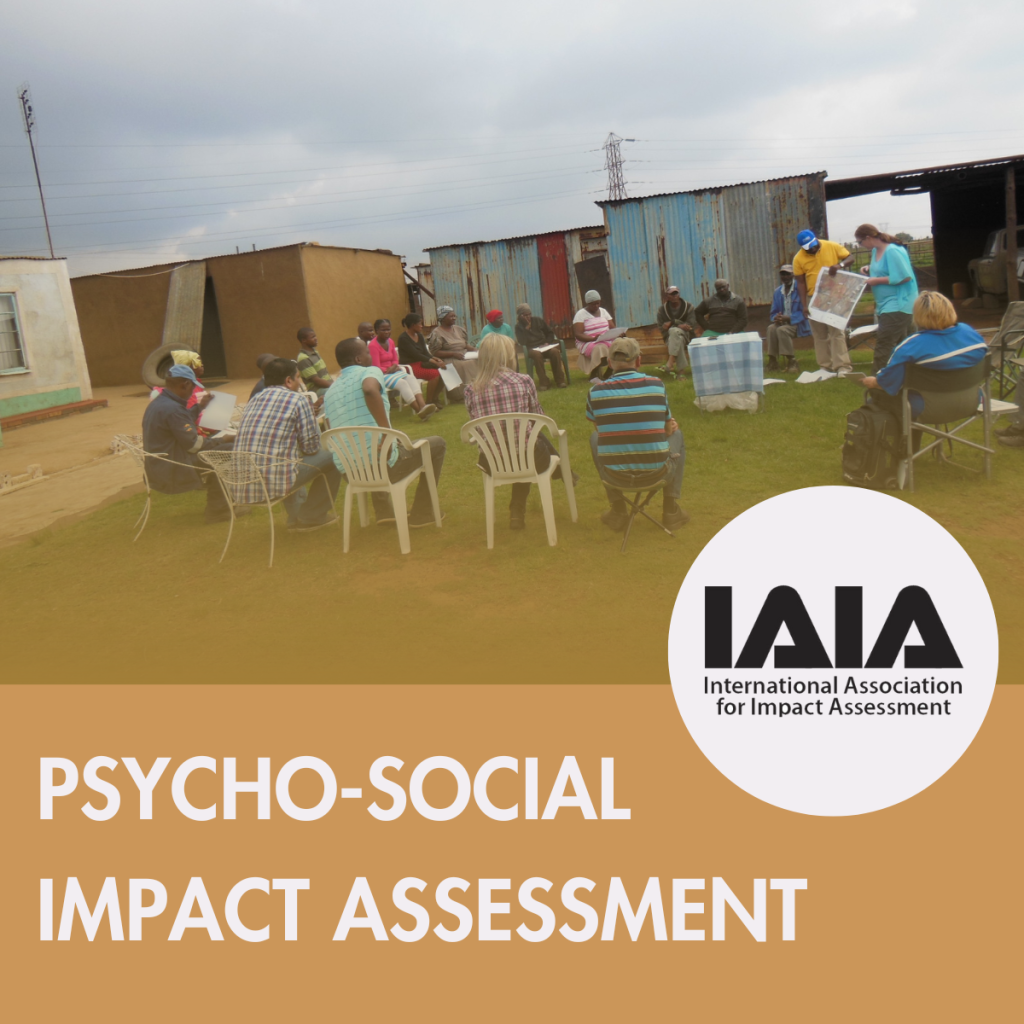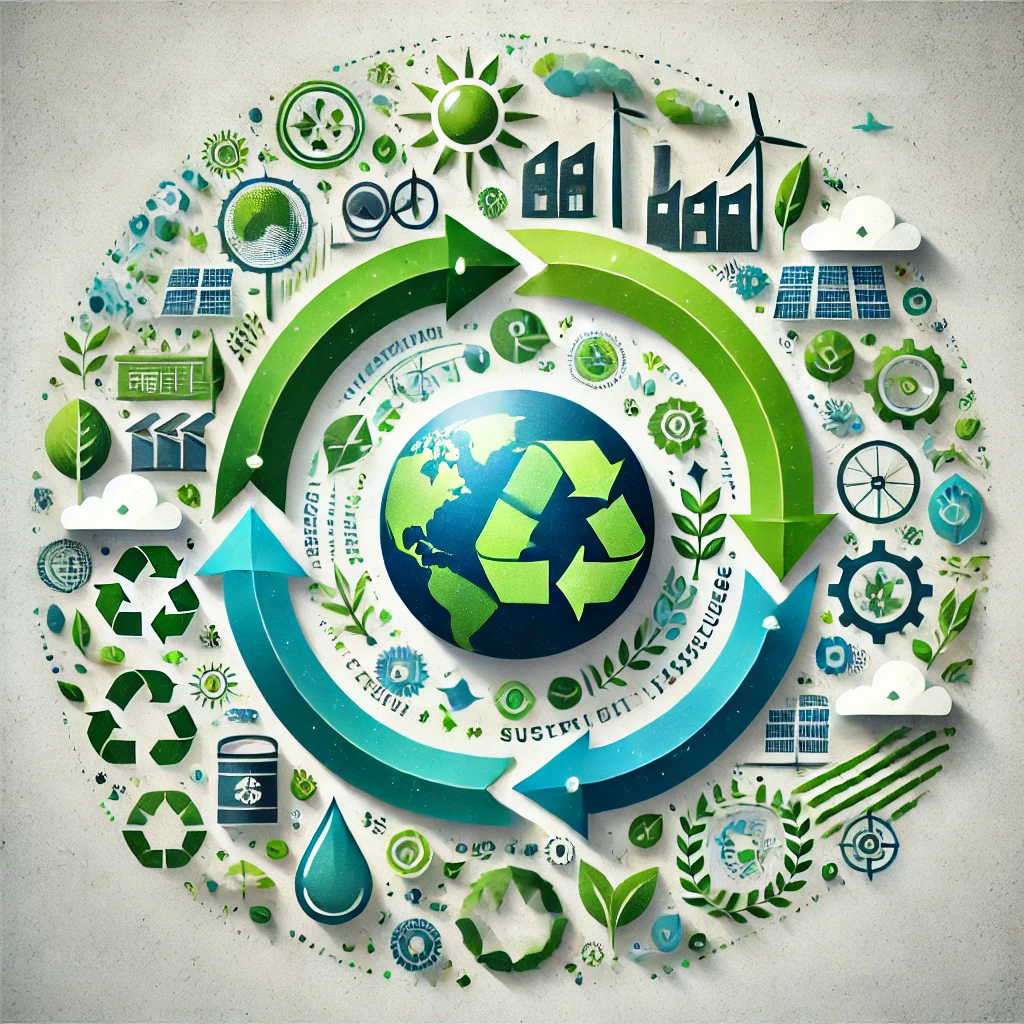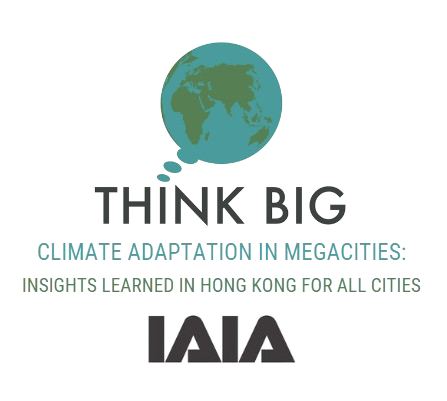
Think Big: A Cleaner, Greener Covid-19 Recovery
A six-part virtual forum reimagining impact assessment for a greener, more just post-COVID future
As nations around the world begin to invest trillions of dollars post-pandemic in infrastructure, will these projects be evaluated under scaled-back environmental and social regulations, using the justification that rapid actions are needed for economic recovery? Or will they be evaluated under the legal structures that were already weakened pre-COVID? Will the economic development projects that are approved be the same unsustainable ones that contributed to global climate change in the pre-pandemic era and provided the opportunity for zoonotic diseases like COVID-19 to develop?
Because the best defense is a good offense, the International Association for Impact Assessment (IAIA) and the Earth Law Center (ELC) partnered to offer a six-part Virtual Forum on this issue. It is not sufficient for impact assessment to simply snap back to its pre-COVID state, so this Virtual Forum aims to help define the future directions of impact assessment. It highlighted recent challenges to impact assessment, but more importantly, it supports a “Think Big” vision – an agenda that considers both climate change aspects and ecocentric perspectives so that we do not just recover to where we were but improve from where we have been.
This virtual forum consisted of six sessions.
Session 1: The world has pivoted because of COVID-19 – Does IA need to as well? (2 November 2021)
How should we respond to the growing global movement to weaken impact assessment policy? Globally, impact assessment legislation and policy has been suspended or weakened because of COVID-19. This weakening could accelerate when national deficit and economic recovery programs commence. This should be an issue of grave concern to the public and the impact assessment community. Presenter Peter Croal discusses how we should respond.
Where is the evidence? How does COVID-19 present threats and opportunities to the practice of impact assessment, and what should we do about it? Presenter Dr. Alan Bond shares examples from around the globe that show real effects on impact assessment processes and demonstrate why impact assessment is essential and even more critically important because of the pandemic.
Session 2: COVID-19 impacts on impact assessment (4 November 2021)
Main benefits and issues of EIA procedures: A researcher’s perspective. Presenter Andreea Niță examines hidden links between COVID-19 pandemics and the Environmental Impact Assessment procedure.
Achieving sustainable livelihoods in the face of climate change. Case studies in the Sudan and the Nile, shared by presenter Sumia Mohamed, will exemplify comparative impact assessment and its implications for sustainability.
Session 3: Avoiding the next pandemic: Mobilizing full public and private engagement (9 November 2021)
Vulnerability and impact assessment: Innovative approaches. What are some ideas and methods for achieving sustainable human livelihoods and biodiversity conservation, and what role does impact assessment play? Presenter Stacey Fineran will address these questions.
The Emerging Field of “Earth Law.” What is this new generation of Earth-centered laws and policies taking root all over the world–and how this could shape the future of environmental assessments, such as by giving a voice to the voiceless. Presenter Grant Wilson will address these questions.
Session 4: Understanding the Need for Institutional Change to Facilitate Covid-19 Recovery, Biodiversity Restoration, and Climate Action (12 November 2021)
Rethinking the Role of the Council on Environmental Quality in the Transition to a Clean Energy Economy. Since it was established in 1970 by the National Environmental Policy Act (NEPA), the Council on Environmental Quality (CEQ) has worked within the Executive Office of the President to advance a national environmental policy through environmental impact assessment. Presenter Edward (Ted) Boling discusses CEQ’s undertaking of a phased reassessment of the 2020 revisions to the CEQs NEPA regulations, which were the first comprehensive revisions in 40 years.
Earth Law and Impact Assessments. “Earth law” is an emerging body of law for protecting, restoring, and stabilizing the functional interdependency of Earth’s life and life-support systems. In other words, Earth law lets Nature operate naturally. Earth law is both a departure from environmental law and a new context for its extension. It is considered ecocentric law, as opposed to and compared to anthropocentric law. Presenter Herman Greene shares how this cutting-edge field can influence the future of impact assessment in the US and globally.
Session 5: Key elements of next generation impact assessment (16 November 2021)
The next generation of impact assessment. Presenters John Sinclair and Robert Gibson discuss how elements of good practice in the next generation of impact assessment can be used to support smart decision making, implementation, and oversight.
Legal pathways to impact assessment of massive infrastructure projects. Presenter Michael B. Gerrard discusses the legal implications of large-scale developments of wind, solar and other infrastructure under COVID-19 recovery and climate change.
Session 6: Closing Panel: The Road to a Cleaner, Greener COVID-19 Recovery (18 November 2021)
Moderator Peter Henderson of Reuters News leads a live panel featuring several speakers from this Think Big virtual forum. Listen as they bring together various aspects of their presentations to focus on the road ahead for a cleaner, greener COVID-19 recovery and answer questions posed by participants throughout the forum.
About the Forum
As nations around the world begin to invest trillions of dollars post-pandemic in infrastructure, will these projects be evaluated under scaled-back environmental and social regulations, using the justification that rapid actions are needed for economic recovery? Or will they be evaluated under the legal structures that were already weakened pre-COVID? Will the economic development projects that are approved be the same unsustainable ones that contributed to global climate change in the pre-pandemic era and provided the opportunity for zoonotic diseases like COVID-19 to develop?
Because the best defense is a good offense, the International Association for Impact Assessment (IAIA) and the Earth Law Center (ELC) are partnering to offer a six-part Virtual Forum on this issue. It is not sufficient for impact assessment to simply snap back to its pre-COVID state, so this Virtual Forum aims to help define the future directions of impact assessment. It will highlight recent challenges to impact assessment, but more importantly, it will support a “Think Big” vision – an agenda that considers both climate change aspects and ecocentric perspectives so that we do not just recover to where we were but improve from where we have been.
Impact assessment is an essential, comprehensive tool for strategic and local planning of projects, policies, and programs because it identifies alternatives, seeks to mitigate adverse impacts, and incorporates monitoring plans and strategies. However, as a decision-making process, impact assessment has been under stress around the globe for decades by those who value short-term results over long-term benefits. The COVID-19 pandemic has brought additional challenges to impact assessment by, in some cases, reducing the ability to get into the field to gather data and actively engage affected parties – a critical component to the process.
Even in the best of situations, when impact assessment attempts to fairly balance environmental, economic, and social concerns, it rarely employs ecocentric perspectives that result in significant alterations to development plans. One way for impact assessment to become truly transformative is for the practice to adopt a more fully-integrated consideration of ecosystem health, and for laws to be enacted that recognize Nature’s right to exist and thrive in harmony with humanity.
Think Big: A Cleaner, Greener Covid-19 Recovery features virtual presentations from the impact assessment profession and the legal community. This series provides insights into how impact assessment can more fully address rights of nature, biodiversity, and global climate change as the world recovers from COVID-19. Five weekly sessions were held with presentations and Q&A. A sixth and final panel discussion brought some of the presenters together to discuss how impact assessment can ensure smart decisions for a comprehensive COVID-19 recovery.
Meet the Experts
Session 1: Peter Croal and Alan Bond
Peter Croal is a Fellow of the Royal Canadian Geographical Society and has a B.Sc., Geology Degree from Carleton University (1979). Peter has been working in the field of environmental assessment and international development for over 35 years. He focuses on the relationship between environmental management, resource extraction, and poverty reduction in developing countries and the Arctic.
Dr. Alan Bond, School of Environmental Science, University of East Anglia and Extraordinary Professor, Research Unit for Environmental Sciences and Management, North West University (Potchefstroom campus).
Session 2: Andreea Niță and Sumia Mohamed
Andreea Niță, PhD, Senior Researcher, Centre for Environmental Research and Impact Studies, University of Bucharest, Romania.
Sumia Mohamed, MENR, Ohio State University, Omdurman Ahlia University, Sudan, Sudanese Environmentalists Association
Session 3: Stacey Fineran and Grant Wilson
Stacey A Fineran, PhD, Assistant Professor of Professional Practice in Environmental Assessment, MENR Director, College of Food, Agricultural, and Environmental Sciences, School of Environment and Natural Resources, Ohio State University.
Grant Wilson, Executive Director, Earth Law Center. Grant Wilson is a leading expert on the Rights of Nature, ecocentric law, and international environmental law For the last decade, he has defended the rights and interests of Nature all over the world, including by writing new Rights of Nature laws throughout the Americas and winning decisive courtroom victories for rivers and other ecosystems. He is the co-lead author of the first law school coursebook on Earth law, entitled Earth Law: Emerging Ecocentric Law--A Guide for Practitioners (Wolters Kluwer, 2021). Grant earned a J.D. with a Certificate in Environmental and Natural Resources Law from Lewis & Clark Law School.
Session 4: Ted Boling and Herman Greene
Edward (Ted) Boling served as the country's top National Environmental Policy Act (NEPA) attorney as an associate director at the Council on Environmental Quality (CEQ) in the Executive Office of the President. His experience includes deep involvement in federal infrastructure permitting issues and the first comprehensive revision of CEQ's NEPA regulations in 40 years. Ted currently advises leaders on transportation and energy development projects, agencies that must hire outside counsel, and the environmental professionals that support them on the development of renewable energy, resource development, transportation, and infrastructure.
Herman Greene is President of the Center for Ecozoic Studies, in addition to being a corporate, tax, and securities lawyer. He holds degrees in Spirituality and Sustainability, Law, Ministry, and Political Science.
Session 5: John Sinclair, Robert Gibson, and Michael Gerrard
Dr. John Sinclair is a Professor and the Director of the Natural Resources Institute at the University of Manitoba. He has focused work on assessment law and policy components and implementation for over twenty-five years, particularly in the areas of participation and learning.
Dr. Robert Gibson is a Professor at the School of Environment, Resources, and Sustainability at the University of Waterloo. He has worked as a practitioner, advisor, and academic to strengthen attention to environmental and sustainability imperatives in assessment and associated policy making and planning since the mid-1970s.
Michael B. Gerrard is an Andrew Sabin Professor of Professional Practice at Columbia Law School and founder and Faculty Director of the Sabin Center for Climate Change Law. He is a member and former chair of the faculty of the Columbia Earth Institute as well as the American Bar Association's Section of Environment, Energy and Resources. From 1979 through 2008 he practiced environmental law full-time in New York, most recently as partner in charge of the New York office of Arnold & Porter, handling litigation, transactions and regulatory compliance. He is author or editor of 13 books on environmental law.
Session 6: Live panel with moderator Peter Henderson
Peter Henderson, Breaking News Companies Editor, Reuters News. Based in the San Francisco Bay Area, USA, Peter has worked as an editor and reporter for Reuters for years, covering climate change-related stories including the rise of California's carbon market, "green" companies such as Tesla, and the rush by corporations to pledge carbon neutrality, with a sharp look at the details of those promises. Peter's work as a business journalist in California also spans the .com implosion and growth of social media and Big Tech. He has reported on national issues from hurricanes to the mortgage crisis over a decade ago. He began working for Reuters in Moscow covering the rise of the post-Soviet Economy.






